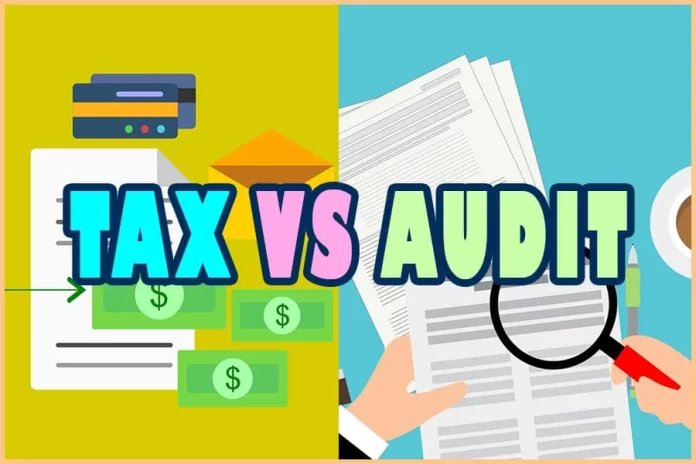The decision to specialize in tax or audit is one that many accounting professionals grapple with at some point in their careers. They are both critical services that accountants can provide to their clients.
Though they share some similarities, some key differences set them apart. And while both specialties have their advantages, there are a few factors to consider when making the decision.
The most important factors may be your long-term career goals and objectives. So which service should you choose as an accountant? Let’s find out.
Tax Vs. Audit
Tax preparation is focused on helping individuals and businesses comply with the tax code by filing tax returns and paying the proper amount of taxes. It’s more analytical and is more specialized.
On the other hand, an audit is a review or examination of financial records by a designated auditor to ensure accuracy and compliance with accounting standards. It’s more about investigating for any errors or financial fraud.
Both majors have their pros and cons. All that matters most is what you want in a career.
Tax Accounting
Tax accounting is a branch of accounting that prepares and files tax returns. It involves recording, categorizing, and reporting financial transactions to determine a company’s tax liability.
As an accounting major, you will prepare and analyze tax documents. You will learn about;
- The different types of taxes, how to file taxes, and how to calculate taxes
- Bookkeeping and financial statement preparation
- How to apply the tax code to individual and corporate tax returns
Pros
- Tax accounting is always in demand, so you will be able to find a job after you graduate.
- If you want to open up your practice, it’s that simple. Many small businesses are always hiring bookkeepers.
- You get independence in your work
Cons
- It’s a deadline-driven field that could require you to sacrifice all your free time to meet clients’ needs. Although the task’s breadth is not as extensive as auditing, the timelines are doable.
- No frequent interactions with clients
Audit Accounting
In audit accounting, you’re essentially reviewing a company’s financial accounts for correctness and adherence to Generally Accepted Accounting Principles (GAAP).
Keeping financial statements accurate is a vital part of accounting because if they aren’t accurate, it can lead to problems for the company.
Auditing involves:
- Examining and evaluating a company’s books, accounts, and vouchers to report on the financial statements
- Detect any potential errors
- Ensure that they are written correctly and reflect fair business practices.
- You’ll also learn about generally accepted auditing principles which are the guidelines that auditors use when reviewing financial statements.
Pros
There are a few pros to choosing audit accounting:
- It’s a very stable career choice. There is always a need for people who can verify financial statements, and the job outlook for auditors is good.
- Auditing is a critical part of any accounting job, so if you want to move up in the accounting world, this is an excellent skill.
- You’ll be able to work in a team, so there’s room for mentorship
- You’ll travel a lot
- A lot of client interaction
Cons
- Some people might not like to travel frequently
- It’s mandatory to remain professional and skeptical about ensuring impartial judgment even though you may have great relationships with clients.
What Are The Similarities In The Two Fields?
There are some similarities between tax and audit accounting majors.
- Both fields require an understanding of financial accounting and how to prepare tax returns and financial statements.
- In addition, both majors involve working with clients and completing audits.
Differences
While the two majors are similar in a few ways, there are several critical differences.
Individuality vs. teamwork
The most notable is that tax accounting is an independent field, whereas audit accounting requires teamwork. Within their degree of experience, tax professionals prefer to work separately and independently.
On the other hand, the audit group usually works as a unit. Every day, the tax preparer works their magic from the comfort of their office, enjoying (relatively) regular and predictable labor.
Focus On Each Major
Tax accounting focuses on preparing and filing tax returns, while audit accounting involves verifying financial records and investigating potential fraud.
Tax accounting is a relatively straightforward process involving calculating how much tax a person or company owes and submitting the relevant forms.
On the other hand, audit accounting is more complex than tax accounting and often requires skills such as; analytical, critical, attention to detail, interpersonal and professional skepticism. You must be capable of maintaining a level of healthy skepticism.
Precision
Tax accounting is all about being precise and exact. You must calculate taxes owed by individuals and businesses accurately; this requires excellent attention to detail, as even the tiniest mistake can lead to penalties from the IRS.
On the other hand, audit accounting focuses less on details and overall big-picture concepts. Auditors are responsible for examining financial records and determining whether or not a company is accurately reporting its financial status.
Client Relationships
Tax accounting typically requires little interaction with clients, while audit accounting involves a lot of client contact and interactions.
As an auditor, you’ll need to be okay with squabbles or divergent viewpoints with your customer.
Strong interpersonal and communication skills are required. An external auditor will test, track, and document information. They’ll also ask many questions, and they’ll need to obtain answers that make sense.
Amount Of Travel
Another difference between the two majors is the amount of travel required. Tax accountants typically do not need to travel as much as auditors, as their work is primarily done in an office setting.
On the other hand, audit accounting majors often have to travel to client sites to conduct audits.
The auditors spend most of their busy season at various client locations and must adhere to the team’s and client’s schedules.
Busy Seasons
The busy season for a tax accountant is from January through April. Tax accountants have to work all year long to stay up to date with the changes in the tax code, but they are swamped during the four months leading up to the tax deadline.
An audit accountant’s busy season is during the company’s fiscal year that they are working for.
The difference is that auditors can have a life during their busy season while tax accountants can’t. Tax season is hectic for them, and they must sacrifice their free time.
Making Your Decision
Try Them Both
When it comes to deciding between tax accounting and audit accounting, the best way to figure out which is right for you is to try them both out.
It is essential to try out both fields during internships to get a feel for each one. Tax accounting is more analytical, while audit accounting is more investigative.
Consider Your Personality Type
Are you detail-oriented or like working with numbers? Are you also able to stay calm under pressure? If you answered yes to all of these questions, tax accounting might be the better fit.
There is a lot of number-crunching involved in this line of work, so if that’s something you’re interested in, you’ll love tax accounting.
Some students enjoy the research and analysis involved in auditing, while others prefer the more numbers-driven nature of tax accounting.
Auditing is for you if you love traveling and have no problem meeting new people and interacting with them substantially. And if you’re an introvert, then being a tax accountant will suit you.
Where You Want To Work
If you want to work for a large public accounting firm, specializing in audit is the way to go. These firms typically have a wealth of clients who need audited financial statements, and if you want to start your practice, then tax is the way to go.
Tax accounting is more predictable and usually offers a steady income, while audit accounting offers more variety and the potential for higher earnings.
Overall, both majors have their pros and cons. It all comes down to what you are looking for in a career.
It is vital to find a career that you will be happy with for the long term, so it is worth exploring both options.
Conclusion
Choosing between tax and audit as a major can be a difficult decision. Both are important and lucrative specialties in the accounting industry, and it ultimately comes down to what you want. In this article, we’ve outlined the main differences between the two career paths.
Tax accounting is all about helping people and businesses pay their taxes. On the other hand, audit accounting checks numbers to make sure they add up correctly. You’ll be looking for errors or any illegal activity.
Please don’t rush into a decision; take your time to research and try them out. Whichever one you choose, both are very fulfilling career paths. We hope this information has been helpful!












